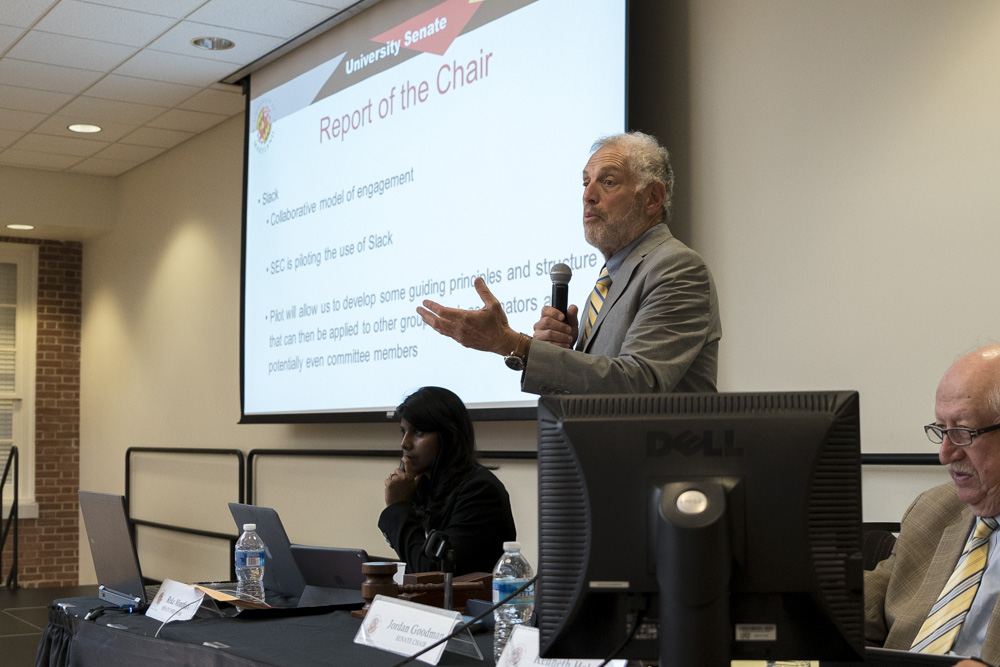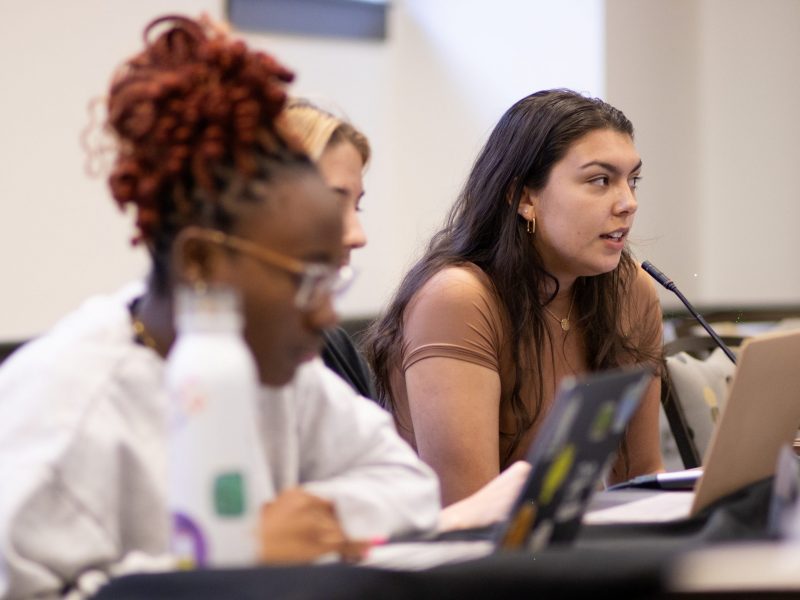The University of Maryland Senate passed a new resolution Tuesday backing the university community’s recent actions to defend and support undocumented students in wake of November’s election.
The senate — representing faculty, staff and students at this university — passed the resolution 82-4 with three abstentions. The resolution, presented by chair-elect Daniel Falvey, reaffirms the senate’s commitment “to develop and disseminate knowledge in an environment that fosters intellectual discourse, free speech, diversity, inclusion, freedom from violence, and mutual respect.”
The move falls in line with university President Wallace Loh’s Nov. 21 email to the campus community offering support for undocumented students and asking university members to back the Deferred Action for Childhood Arrivals policy. There are 113 students attending this university under DACA, which was created by President Obama in 2012 to allow undocumented young people who came to the U.S. as children to work and study in the country.
In the past month, student organizations on the campus have led the charge on grassroots efforts to protect undocumented students and other marginalized groups. Such initiatives have included a walkout of more than 300 students on Nov. 17 in a show of solidarity; a #UmdDreamers Change.org petition; and a call from Political Latinx United for Movement and Action for this university to become a sanctuary campus — a demand that the Student Government Association and Residence Hall Association have both voted in support of.
Senate Chair Jordan Goodman took time during the senate’s meeting to address how President-elect Donald Trump’s future presidency relates to this university and to the senate. Trump promised during his campaign to deport two to three million immigrants once he becomes president.
“We strongly support our campus president with his stand on DACA as well as marginalized groups, but the burden of progress is not his alone,” Goodman said. “We must stand up … and be prepared to act.”
He added that in the post-election environment, it is easy to vilify those who voted differently than us but advised everyone take time to listen as well as to speak.
“A university is a place where all points of view should be freely and respectfully debated,” he said. “It’s critical that we speak out, but it’s equally critical that we listen. We must still recognize that the current situation has left members of our community feeling threatened.”
The resolution’s presentation on Tuesday followed Loh’s annual State of the Campus Address to the Senate, which lasted for more than 90 minutes including the question-and-answer portion.
Here is the resolution in full, provided by senate officials:
Whereas the University of Maryland is a public research and land-grant institution that shares its research, educational, cultural, and technological strengths to promote economic development and improve quality of life in the State of Maryland and the nation.
Whereas the University of Maryland is committed to creating and maintaining an educational, working, and living environment that is safe and free from discrimination and harassment of any kind.
Whereas University programs, activities, and facilities are available to all without regard to race, color, sex, gender identity or expression, sexual orientation, marital status, age, national origin, immigration status, political affiliation, physical or mental disability, religion, veteran status, genetic information, personal appearance, or any legally protected class.
Whereas the University Senate supports the University’s commitment to higher education opportunities for academically-talented students from all backgrounds, supports President Loh’s signing of the University President’s Deferred Action for Childhood Arrivals (DACA) letter, and calls on State and Federal officials to advocate for students who have DACA or Maryland Dream Act status.
Be it resolved the University of Maryland College Park Senate, which represents faculty, staff, and students of the University, reaffirms our commitment to develop and disseminate knowledge in an environment that fosters intellectual discourse, free speech, diversity, inclusion, freedom from violence, and mutual respect.



